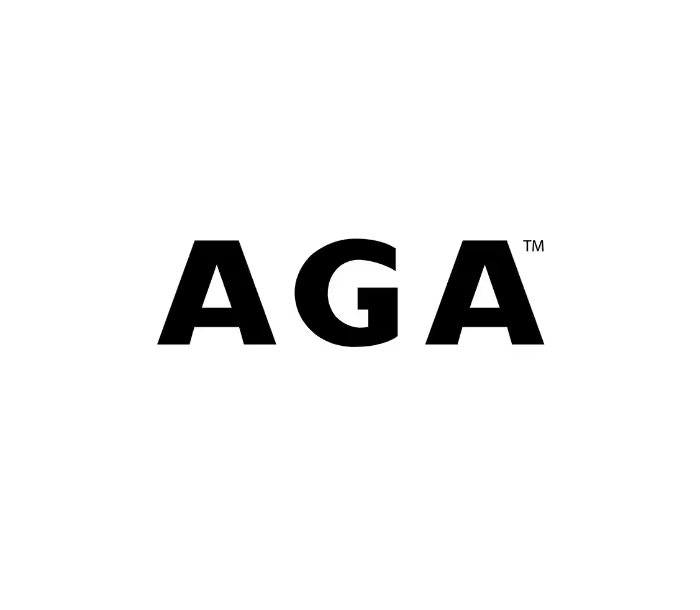KitchenAid Appliance Repair NYC | Same-Day & Next-Day
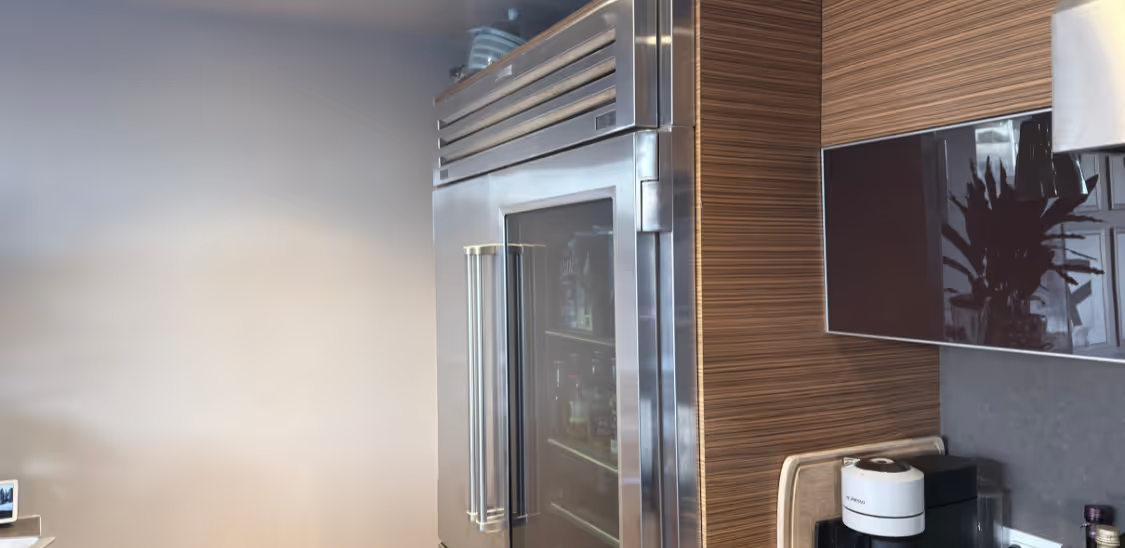
KitchenAid Appliance Repair Services
Volt & Vector Appliance Repair
25 Google reviews
KitchenAid appliances are built for cooking and cleanup. We service KitchenAid dishwashers, wall ovens, ranges, and refrigerators—circulation motors, heating faults, door issues, and electronic controls. $99 diagnostic credited, 180-day warranty. Brooklyn/Manhattan/Queens.
Local techs
+1 (332) 333-1709
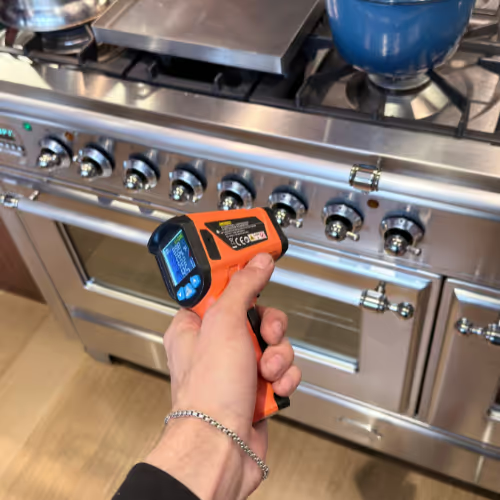

KitchenAid appliances are engineered for reliability but still develop faults. This guide covers KitchenAid troubleshooting, error codes, fixes, and repair vs replacement analysis.
1. Schedule your visit
2. On-site diagnostic
3. Approve & repair
4. Done & covered
COI (Certificate of Insurance)
Available on request - usually not required in Brooklyn, but often asked for in Manhattan buildings and co-ops. Please remember that certain issues can come from incorrect use or installation, not from parts failure - our technicians will always point that out and show how to prevent it in the future.
Warranty & Compliance
Every repair is covered by a 180-day warranty on both parts and labor. If the appliance is older, keep in mind that some surrounding components can wear out over time — sometimes one repair leads to another part showing its age. We always explain options clearly before doing extra work.
Safety & Courtesy Protocol
We treat every visit like we’re guests in your home. Technicians wear shoe covers or remove footwear when entering, and we always clean up after the job. If you notice a little dust or debris left behind - our apologies - each tech handles 3-5 appointments per day and works to stay on schedule. If your window was 11-1, the technician usually arrives closer to 11; if running late, we’ll text you right away. Our goal is simple: work clean, stay safe, and respect your space and time.
Coverage
We cover Brooklyn—Downtown, Brooklyn Heights, Park Slope, Williamsburg, Greenpoint, Bed-Stuy, Carroll Gardens, Prospect Heights, and Flatbush—and Manhattan (below 96th Street)-FiDi, Battery Park, Tribeca, SoHo, Chelsea, Midtown, UES, UWS, Gramercy, and the Village. You’ll receive a text alert ~30 minutes before arrival.
Why Volt & Vector
We’ve spent years working inside large NYC repair companies - seeing how real technicians get buried under rushed schedules, fake “same-day” promises, and endless call-center noise. Volt & Vector grew out of that frustration. We wanted a place where diagnostics still matter, where techs can take time to do the job right and talk to people directly. We’re not calling ourselves perfect - far from it - but we’re building the kind of service we always wanted to work for: respectful, transparent, and run by people who actually fix things.
Pricing & Diagnostic Policy
Our diagnostic visit is always billed at the first appointment - that’s the starting point for every repair. After the visit, the technician sends full details to our service desk. Sometimes the tech can give a price range on-site, but we’re moving away from instant quotes - parts pricing changes like crypto these days, and we’d rather stay accurate than promise the wrong number.
Simple issues - like a clogged drain, loose wire, or minor reset - can often be fixed on the spot starting from $99. If a full repair with parts is needed, total cost varies by brand and model - just like in any NYC company, it can start around $320 and go up depending on parts and labor. We believe in clarity over surprises. You’ll always see the diagnostic results and estimate before any repair begins.
1. Schedule your visit
2. On-site diagnostic
3. Approve & repair
4. Done & covered
COI (Certificate of Insurance)
Available on request - usually not required in Brooklyn, but often asked for in Manhattan buildings and co-ops. Please remember that certain issues can come from incorrect use or installation, not from parts failure - our technicians will always point that out and show how to prevent it in the future.
Warranty & Compliance
Every repair is covered by a 180-day warranty on both parts and labor. If the appliance is older, keep in mind that some surrounding components can wear out over time — sometimes one repair leads to another part showing its age. We always explain options clearly before doing extra work.
Safety & Courtesy Protocol
We treat every visit like we’re guests in your home. Technicians wear shoe covers or remove footwear when entering, and we always clean up after the job. If you notice a little dust or debris left behind - our apologies - each tech handles 3-5 appointments per day and works to stay on schedule. If your window was 11-1, the technician usually arrives closer to 11; if running late, we’ll text you right away. Our goal is simple: work clean, stay safe, and respect your space and time.
Coverage
We cover Brooklyn—Downtown, Brooklyn Heights, Park Slope, Williamsburg, Greenpoint, Bed-Stuy, Carroll Gardens, Prospect Heights, and Flatbush—and Manhattan (below 96th Street)-FiDi, Battery Park, Tribeca, SoHo, Chelsea, Midtown, UES, UWS, Gramercy, and the Village. You’ll receive a text alert ~30 minutes before arrival.
Why Volt & Vector
We’ve spent years working inside large NYC repair companies - seeing how real technicians get buried under rushed schedules, fake “same-day” promises, and endless call-center noise. Volt & Vector grew out of that frustration. We wanted a place where diagnostics still matter, where techs can take time to do the job right and talk to people directly. We’re not calling ourselves perfect - far from it - but we’re building the kind of service we always wanted to work for: respectful, transparent, and run by people who actually fix things.
Pricing & Diagnostic Policy
Our diagnostic visit is always billed at the first appointment - that’s the starting point for every repair. After the visit, the technician sends full details to our service desk. Sometimes the tech can give a price range on-site, but we’re moving away from instant quotes - parts pricing changes like crypto these days, and we’d rather stay accurate than promise the wrong number.
Simple issues - like a clogged drain, loose wire, or minor reset - can often be fixed on the spot starting from $99. If a full repair with parts is needed, total cost varies by brand and model - just like in any NYC company, it can start around $320 and go up depending on parts and labor. We believe in clarity over surprises. You’ll always see the diagnostic results and estimate before any repair begins.
KitchenAid Appliance Repair Services
KitchenAid Dishwasher F9E1 – long drain (clogged pump)
KitchenAid Dishwasher F7E1 – heater relay stuck (no heat)
KitchenAid Dishwasher F4E3 – wash motor failure
KitchenAid Dishwasher F2E1 – keypad/console failure
KitchenAid Refrigerator – evaporator fan icing / no airflow
KitchenAid Refrigerator – compressor start relay failure
KitchenAid Refrigerator – defrost heater open (frost buildup)
KitchenAid Refrigerator – ice maker E2 motor error (no harvest)
KitchenAid Oven F3E0 – temperature sensor (RTD) fault
KitchenAid Oven F1E0 – control board failure
KitchenAid Oven F5E1 – door lock motor not engaging (self‑clean)
KitchenAid Range – igniter wear / no ignition
KitchenAid Range – spark module burnout
KitchenAid Range – gas valve sticking / delayed ignition
KitchenAid Microwave – magnetron failure (no heat)
KitchenAid Microwave – door switch misalignment
KitchenAid Washer – F8E1 no fill (inlet valve)
KitchenAid Washer – F9E1 long drain (pump)
KitchenAid Washer – F0E5 off‑balance
KitchenAid Dryer – thermal fuse blown
KitchenAid Dryer – heating element coil open
KitchenAid Dryer – blower wheel obstruction
KitchenAid Controls – UI not responding after surge
KitchenAid Water System – inlet valve leaking/low pressure
- Dishwashers: F9E1 long drain (pump clog)
- Dishwashers: F7E1 heater relay stuck
- Dishwashers: F4E3 wash motor failure
- Dishwashers: keypad failure F2E1
- Dishwashers: float switch stuck (overfill)
- Refrigerators: evaporator fan icing
- Refrigerators: compressor start relay failure
- Refrigerators: defrost heater open circuit
- Refrigerators: ice maker E2 motor error
- Refrigerators: water inlet valve leaking
- Ovens: F3E0 temperature sensor (RTD) fault
- Ovens: control panel F1E0 failure
- Ovens: door lock F5E1 stuck (self-clean)
- Ranges: igniter wear / no ignition
- Ranges: spark module burnout
- Ranges: gas valve sticking / delayed ignition
- Microwaves: magnetron failure
- Microwaves: door switch misalignment
- Washers: lid lock F5E2 fault
- Washers: drain F9E1 long drain
- Dryers: heating element burnout
- Dryers: thermal fuse blown
Q1: Why is my KitchenAid refrigerator not cooling? A1: Likely coils, fan, or thermistor. | Q2: What does F6E4 mean on a KitchenAid dishwasher? A2: Float switch fault. | Q3: Is KitchenAid oven repair cheaper than replacement? A3: Yes, for igniters and sensors.
Repairing KitchenAid appliances is more cost-effective than replacement. Components such as pumps, igniters, sensors, and valves restore performance at low cost, extending lifespan by 5–10 years.
KitchenAid systems integrate electronics and mechanics: inverter compressors, diverter motors, float switches, igniters, thermistors, fuses, and control relays. Failures often occur at electronic-mechanical interfaces.
Professional service is needed for KitchenAid when error codes persist, sealed systems fail, ignition issues occur, or electrical burning smells appear. Certified repair ensures OEM diagnostics, proper parts, and warranty coverage.
Services
See the full catalog of our services—organized by brand and by appliance—right here.


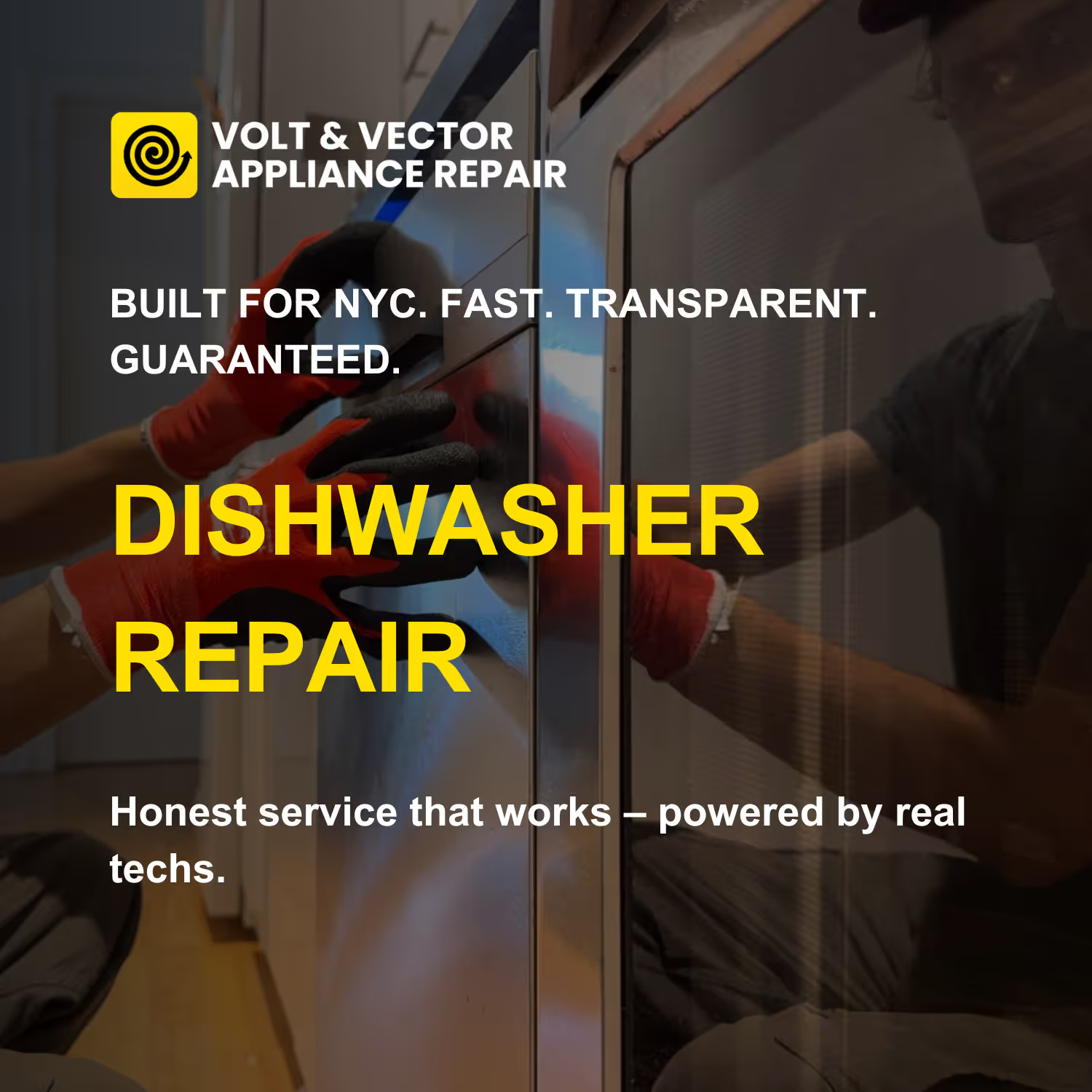
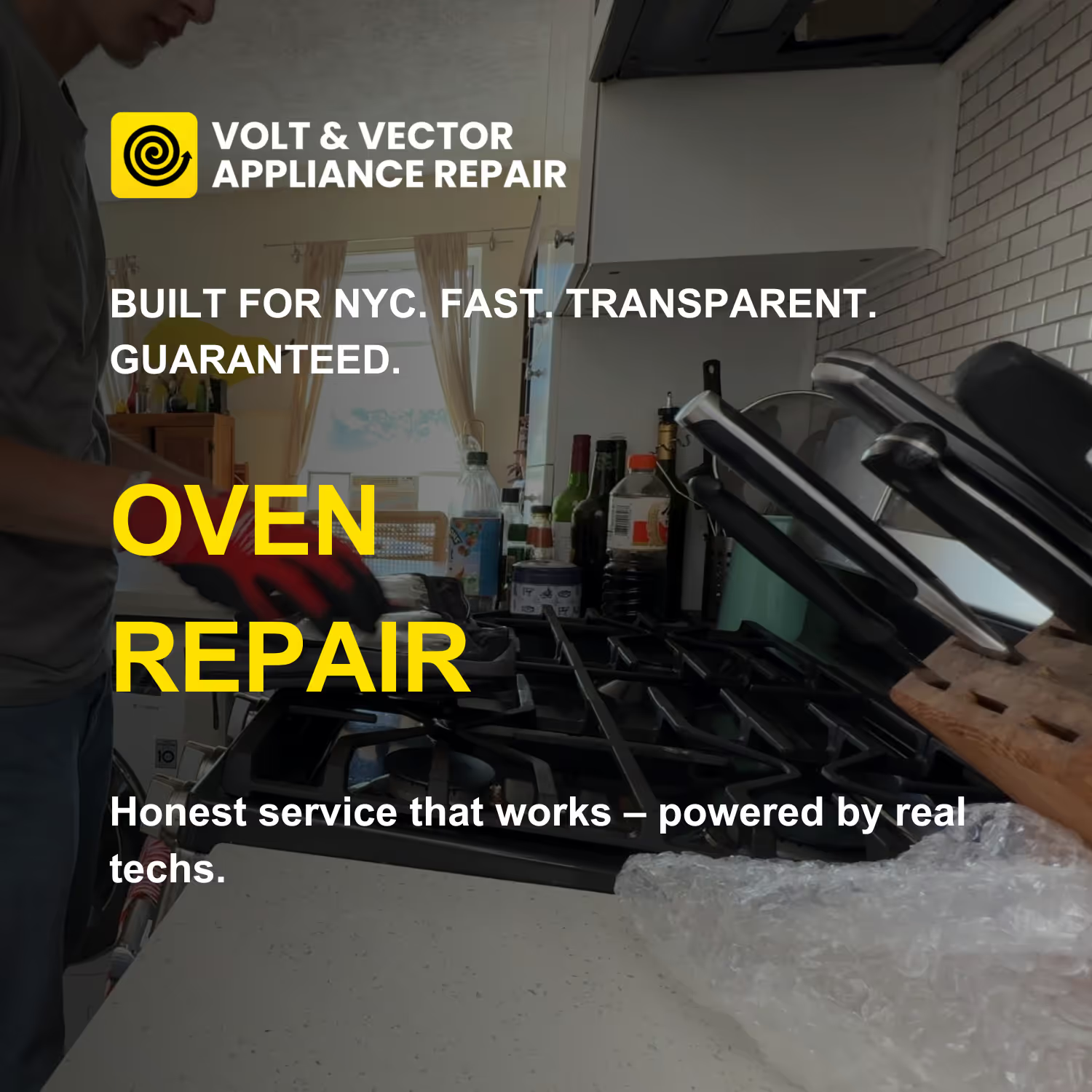
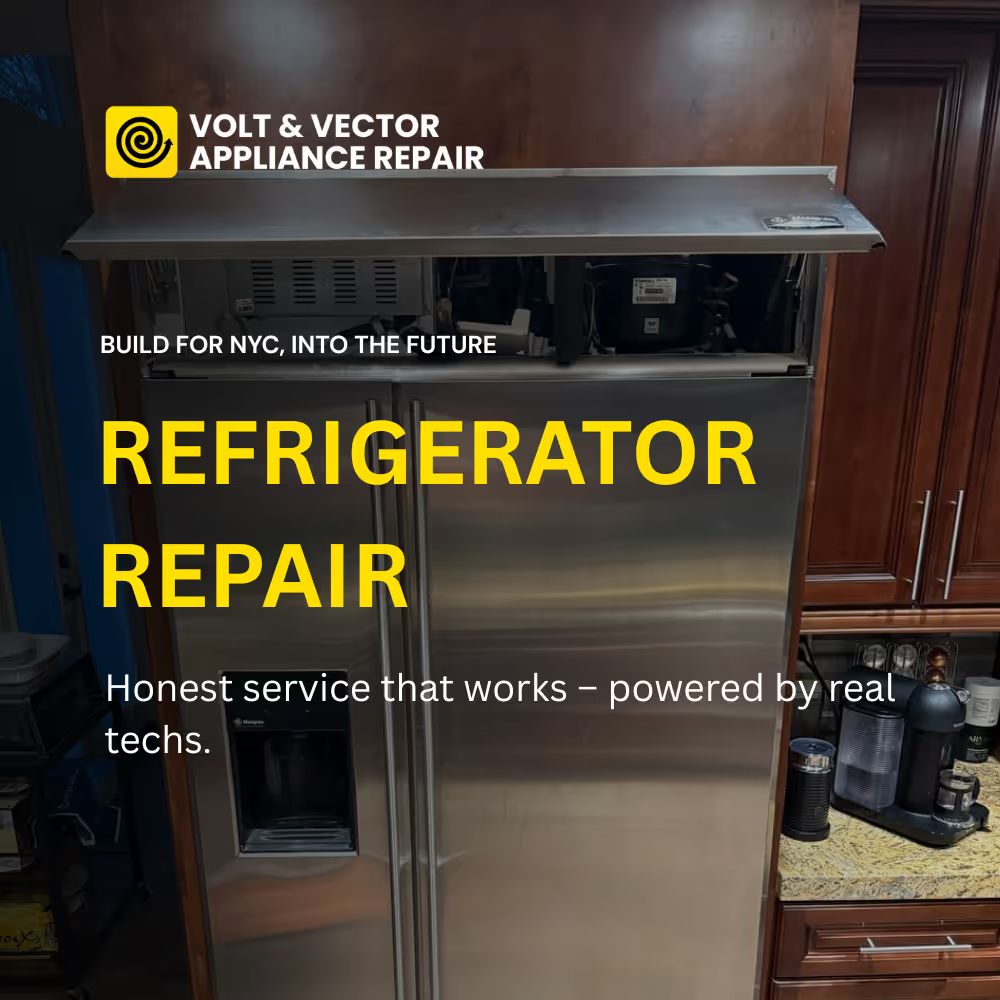
.avif)
.avif)

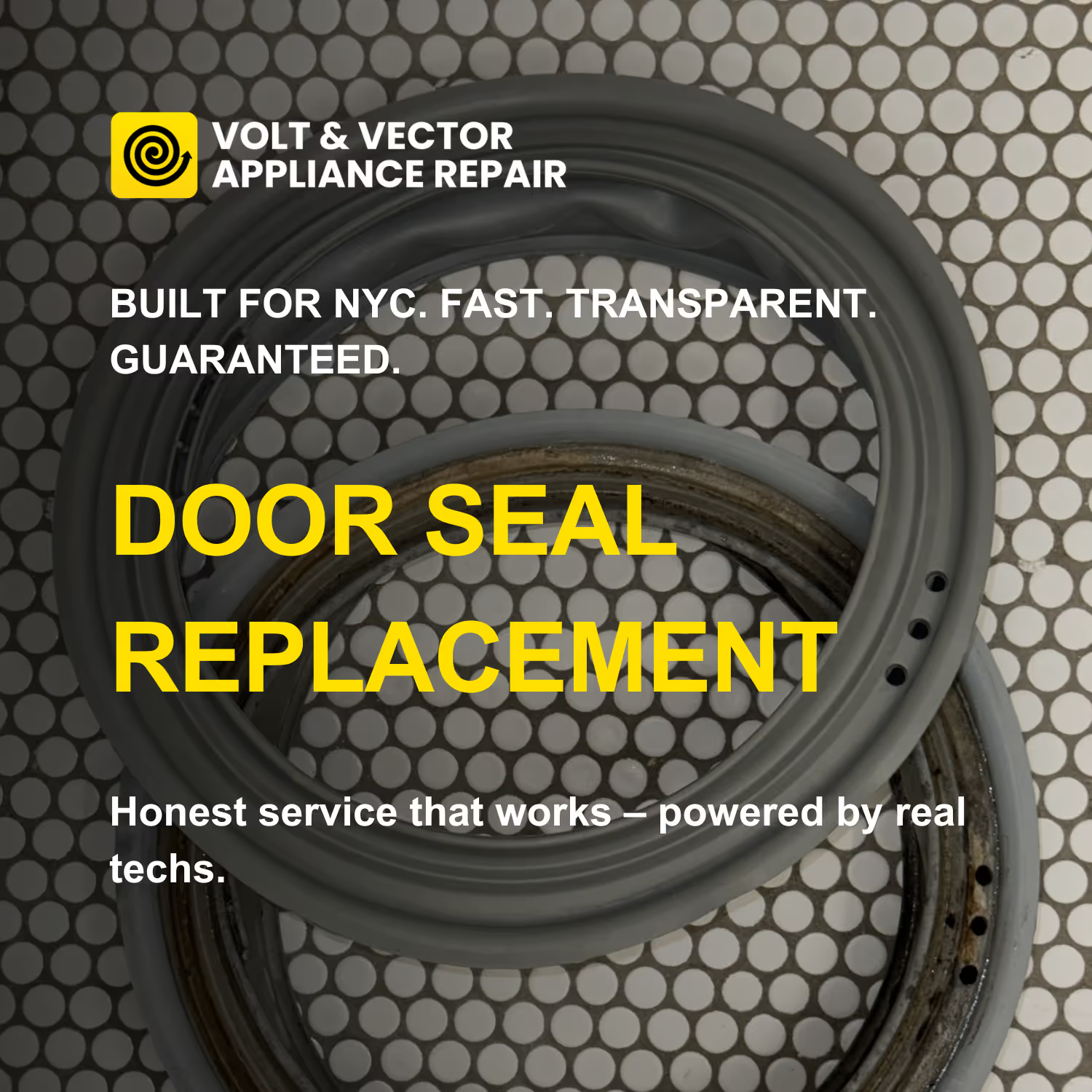
.avif)
.avif)
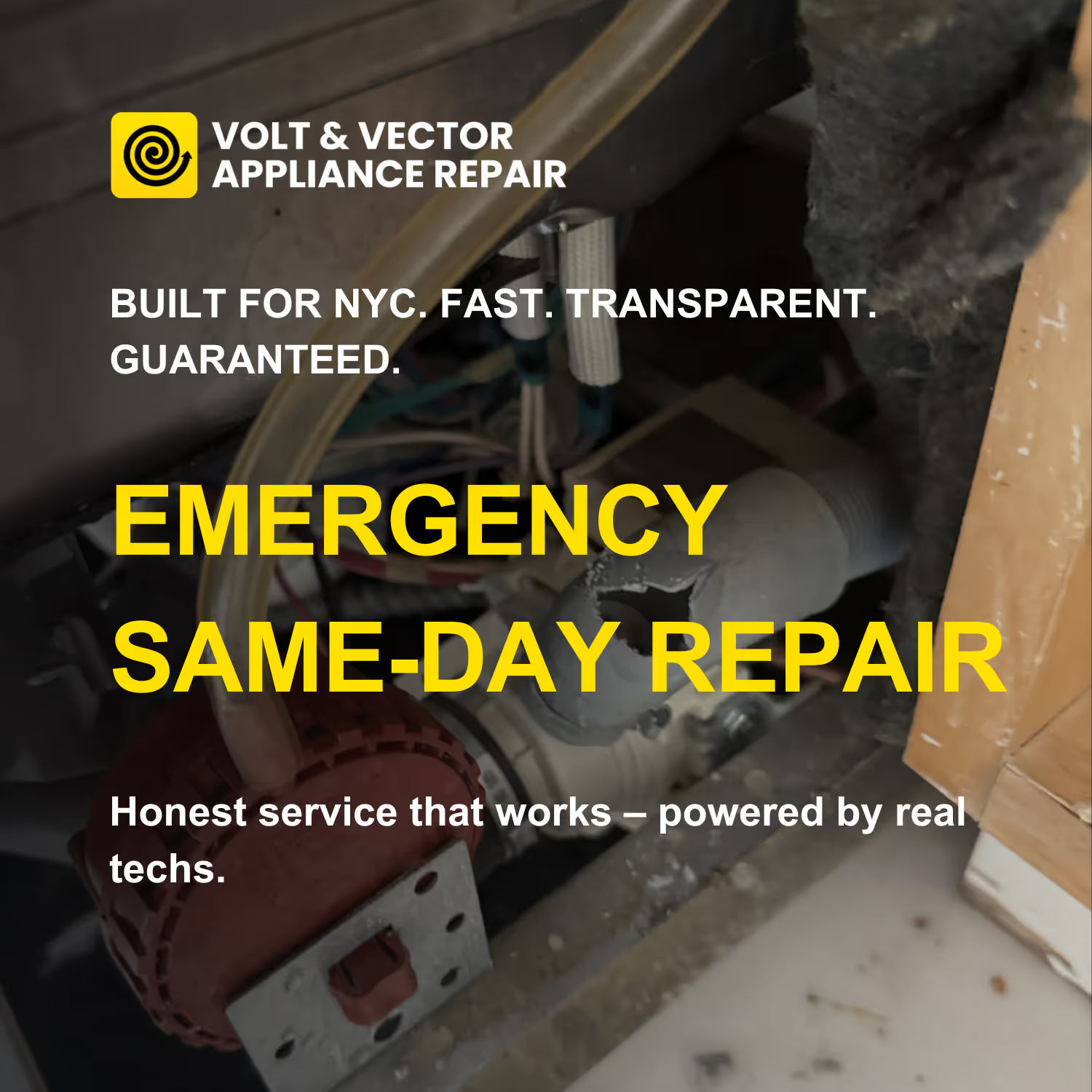
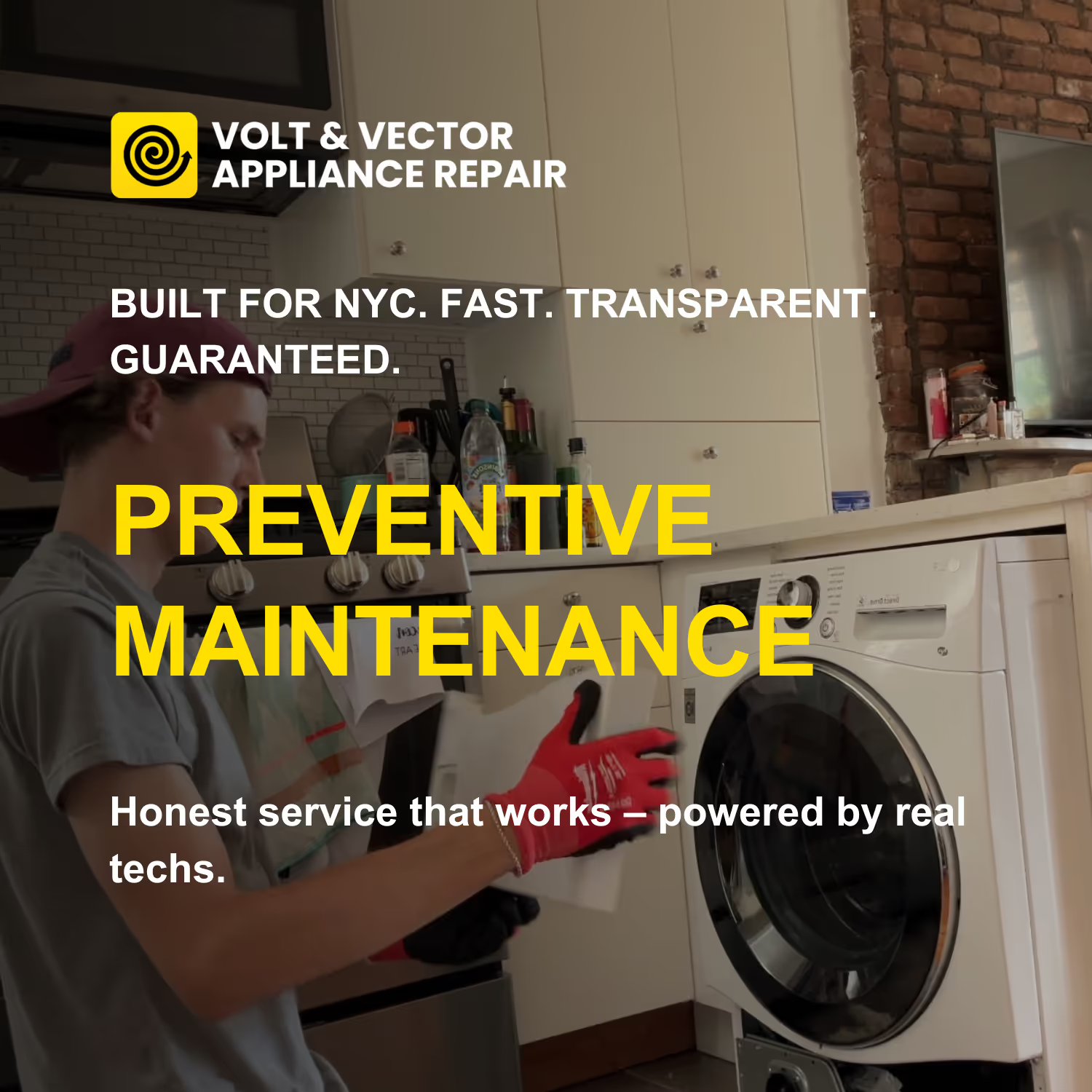
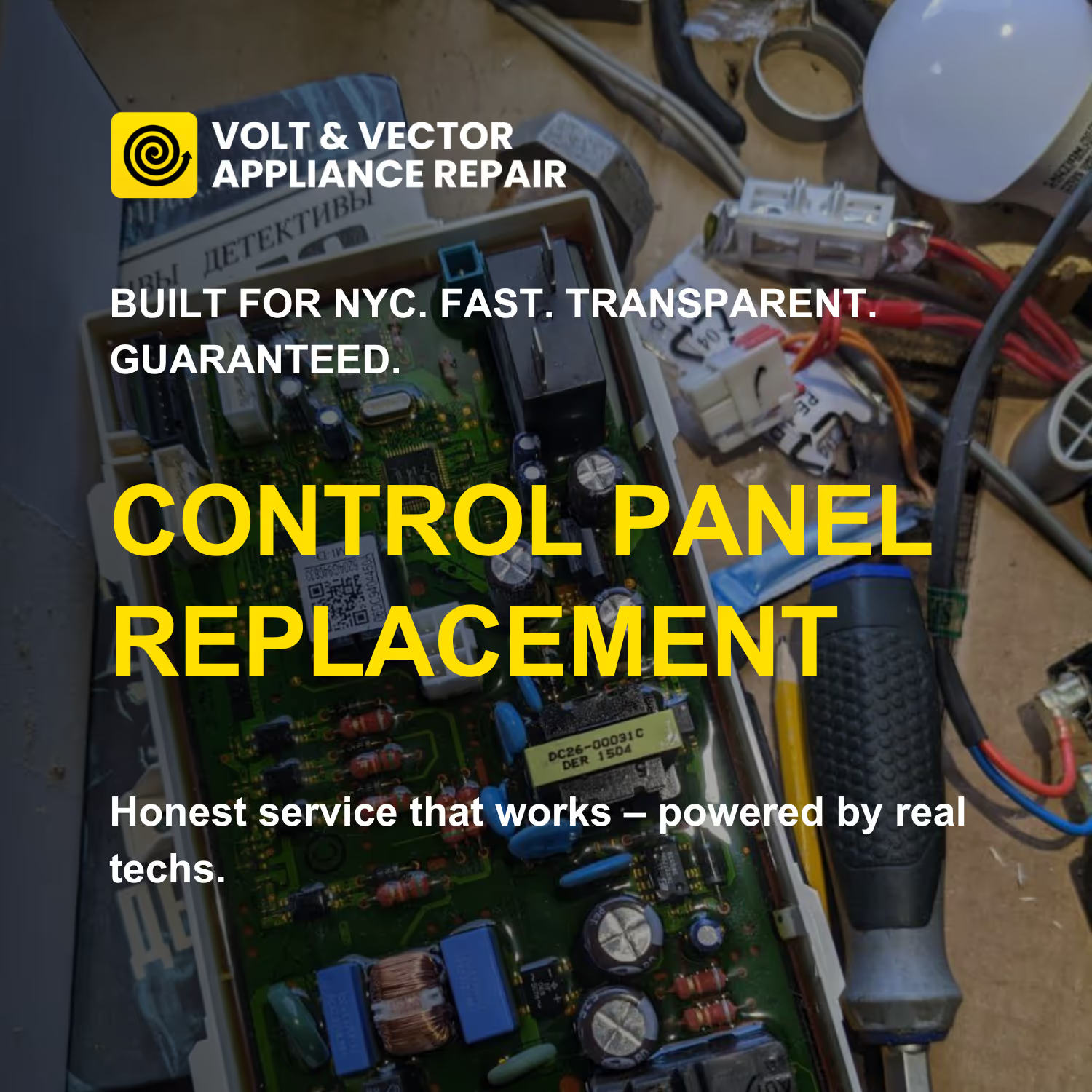
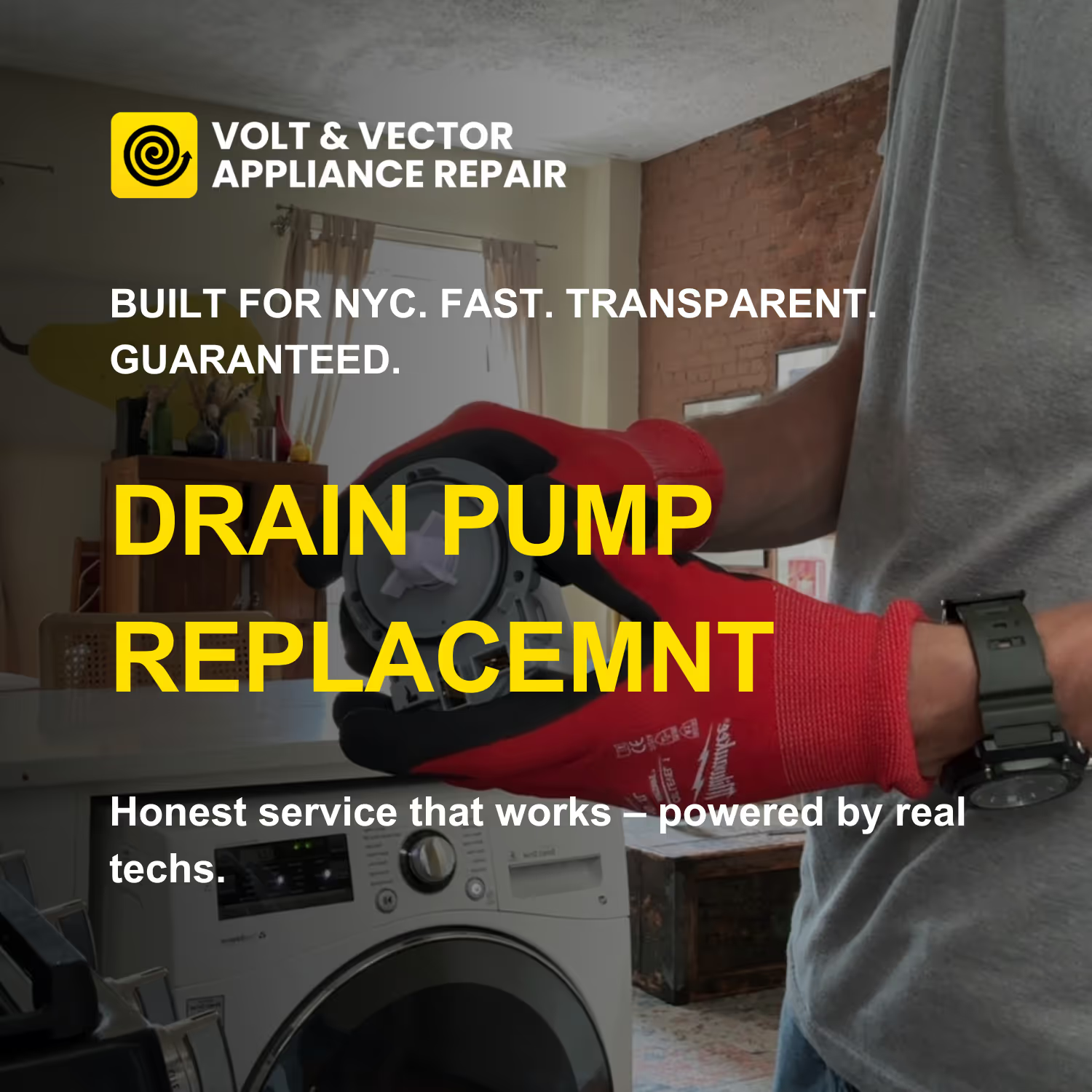
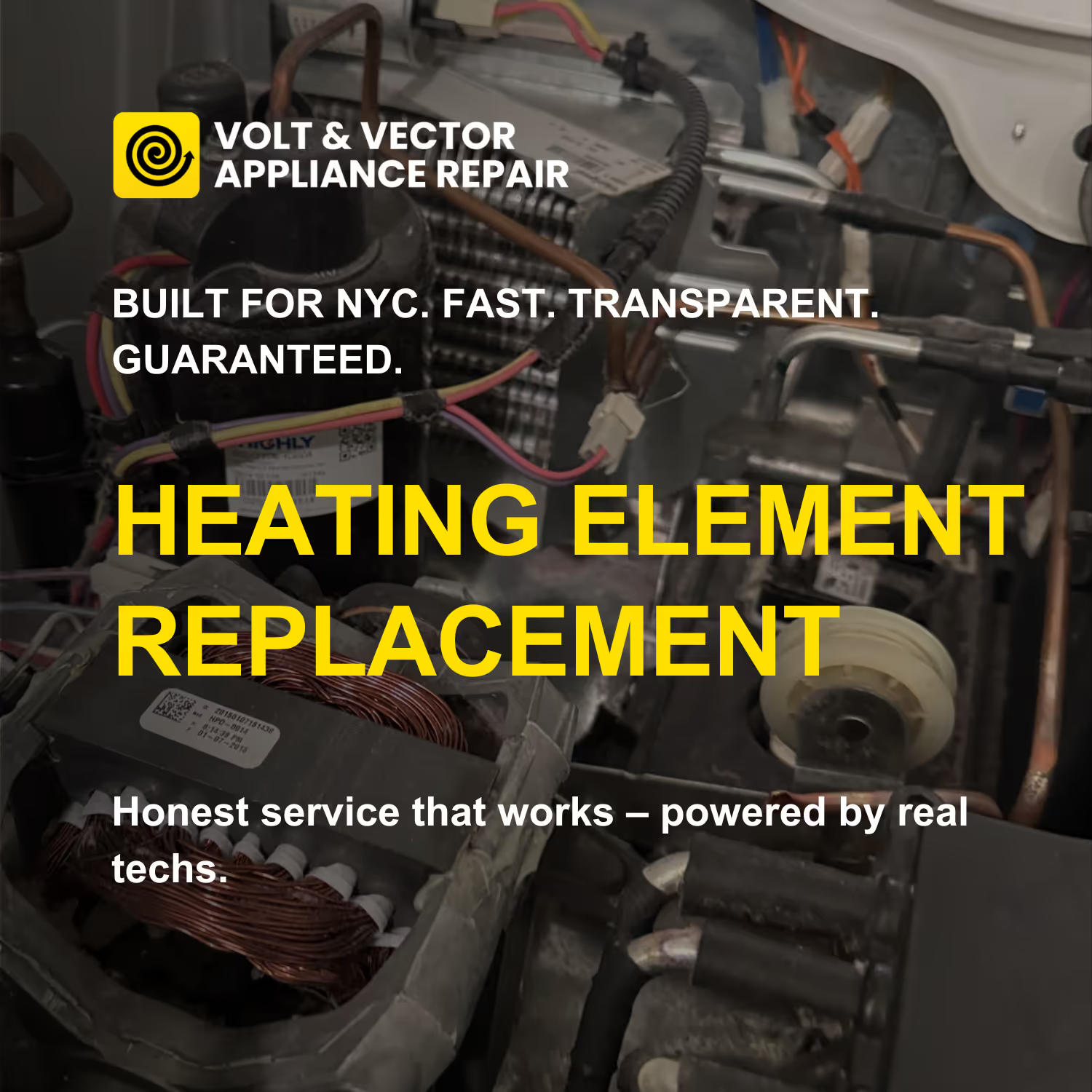
.avif)



